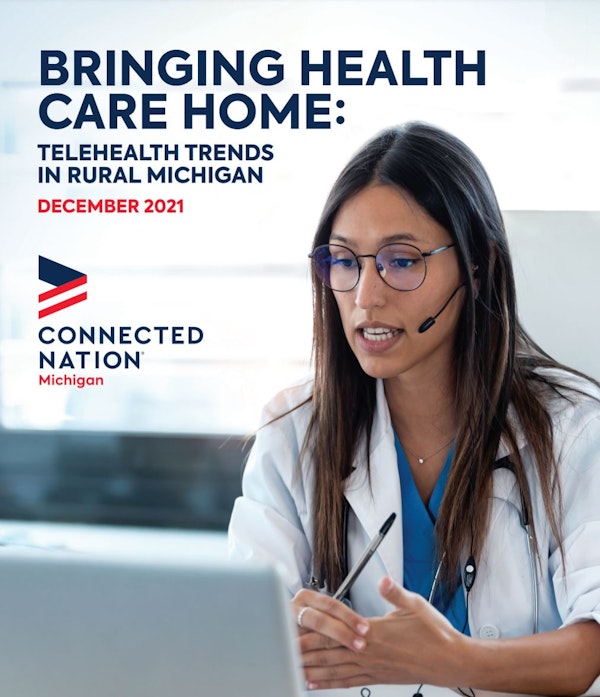In partnership with the Central Upper Peninsula Planning and Development Regional Commission (CUPPAD), Connected Nation Michigan (CN Michigan) conducted a survey of 800 adult heads of households in the six-county region of the Central Upper Peninsula (U.P.), which includes the counties of Alger, Delta, Dickinson, Menominee, Marquette, and Schoolcraft.
The purpose of the survey was to identify rates of telehealth usage, attitudes regarding telehealth services, awareness of current telehealth offerings, and ways to address the challenges some residents in the U.P. face when seeking out telehealth services.
In addition to the survey, four focus group discussions were held to gain further insights into the state of health care in the U.P. and attitudes toward telehealth among residents and regional health care professionals. These discussions offer unique perspectives from the patient and the provider’s viewpoint.

Assessing telehealth attitudes and usage in Northwest Colorado
Remote access, real impacts
In August 2024, the Office of eHealth Innovation (OeHI), located within the Office of the Lieutenant Governor, in partnership with Connected Nation (CN), released this new telehealth report.
It examined how rural Coloradans are using telehealth services and looked at the barriers that prevent some households from using those services
OeHI conducted a survey of 800 adults in rural Colorado households in the northwest part of the state—uncovering challenges these households face.
The areas surveyed were Delta, Garfield, Mesa, Moffat, Montrose, Rio Blanco, and Routt counties.
Insights from the Sault Sainte Marie Tribe of Chippewa Indians
Building Telehealth Equity
The Sault Ste. Marie Tribe of Chippewa Indians has released the findings of a new telehealth study done in partnership with Connected Nation Michigan (CN Michigan) with support from the Michigan Health Endowment Fund. The research provides new insights into how the Tribal members use telehealth, what barriers exist, and attitudes toward telehealth.
“We want to improve health equity among all tribe members — ensuring they have access to the critical health care resources that can help improve their quality of life,” said Larry Jacques, Director of Strategic Planning for the Sault Tribe. “Telehealth can save Tribe members time and money; connect them with high-quality health services; and ensure continued access to health care practitioners when weather or health concerns makes it difficult to travel.”
The study was conducted using a series of surveys and virtual conversations with Tribe members. The purpose was to identify ways Tribal health clinics can expand their telehealth efforts, identify unmet demand, and address concerns that may prevent some Tribe members from adopting telehealth services.
Groundbreaking Telehealth Research
Connected Nation’s research team released a study in March 2020, as the pandemic closed down the country, which closely examined the use and perceptions of telehealth in rural areas.
To explore the issue further, Connected Nation hosted a telehealth summit featuring experts in broadband access and telehealth and explored the issue further with a new study published in December 2021.
Our research continues today with work being conducted in Texas and among tribal communities in Michigan. Contact us today to inquire about our findings or to learn more about conducting a study and analysis in your area.

Telehealth Summit
In April 2021, Connected Nation hosted a telehealth summit that brought together industry insiders and digital equity experts.









